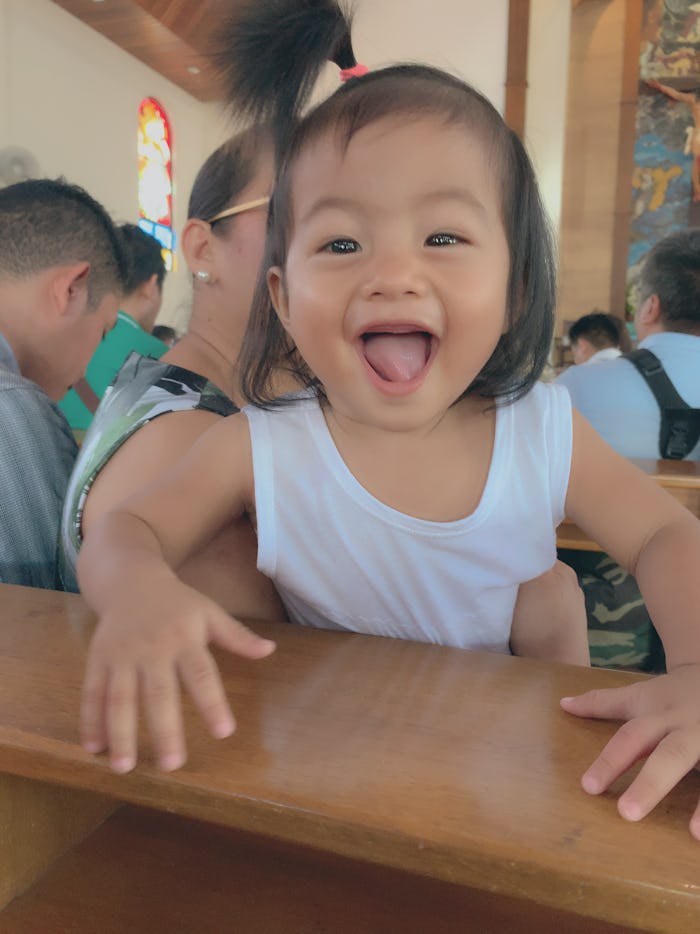Life

Here's Why Babies Love To Freak You Out With Their Pretend Coughs
Nobody prepared me for all of the weird stuff babies do. I knew about diaper changes and feeding and waking several times a night, but I wasn’t prepared to teach my son how to poop and pass gas or to expect a fake cough like he's some kind of comedian. Seriously, maybe it's just a funny personality thing, but why do babies pretend to cough? My son seemed to think he was quite hilarious when he would do it, probably because my anxiety led me to think there was something wrong and the look of terror and concern on my face must have amused him.
Pediatrician Daniel Ganjian tells Romper that when babies “fake cough,” it’s often a “behavioral mannerism” and they’re learning how to make noise. He says it’s like early talking. And apparently my son really was amused by my reaction, because Ganjian adds, “Children are smart and will learn to do it and do it often, especially if they see it gets their parent's attention.”
As for when this strange behavior typically starts, pediatrician Gina Posner tells Romper it can start as early as 3 months old, and Ganjian says it can last until the child is 7 months old.
So how can you tell if it’s a “fake” cough or if there’s an actual issue? Posner says, “If they are having trouble catching their breath or if they are using their stomach muscles to help them breathe, then they need to be seen.” Other signs your child isn’t faking is if it’s accompanied by fever, cough, runny nose, vomiting, diarrhea, and/or a rash, according to Ganjian.
Ganjian also adds that signs for Respiratory Syncytial Virus (RSV) in infants include a recurrent cough and multiple coughs at a time, and it’s often accompanied by crying, being fussy, a fever, runny nose, and decreased feeds. He says you must take your child to see a doctor if they seem sick or exhibit any of these symptoms. Posner says other RSV symptoms include a wet cough or they have “retractions,” which means they suck in their stomach to help them breathe.
But if your child is totally fine otherwise and just loves letting a cough out, they're probably trolling you. If you want to curb the fake coughing behavior, Ganjian says to first, and most importantly, make sure your child is not sick and they don’t have any of the above symptoms. “If you are unsure, ask your pediatrician to check your child first. Once, your pediatrician says it’s OK, just learn to not get alarmed by the cough, since negative or anxious looks by parents will promote such behavior.” He suggests learning to look away when they cough, and it should solve itself within a month. Posner says when you pay attention, you’re reinforcing the behavior.
So apparently our babies are way more intelligent and humorous than we sometimes give them credit for. They may fake cough after hearing you cough, they might do it for attention, or they might just be curious to see what happens. Just look for their telltale smirk as you jerk your head around to check on them, and know this phase shall pass.
Experts:
Daniel Ganjian, MD, pediatrician at Providence Saint John’s Health Center in Santa Monica, California.
Gina Posner, MD, pediatrician at MemorialCare Orange Coast Medical Center in Fountain Valley, California.
This article was originally published on